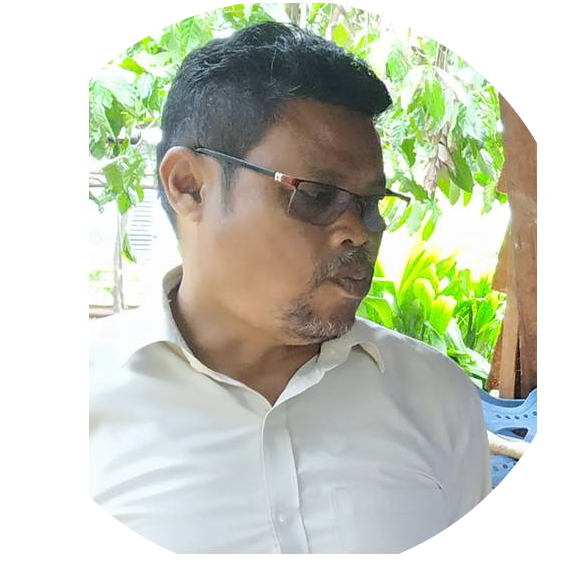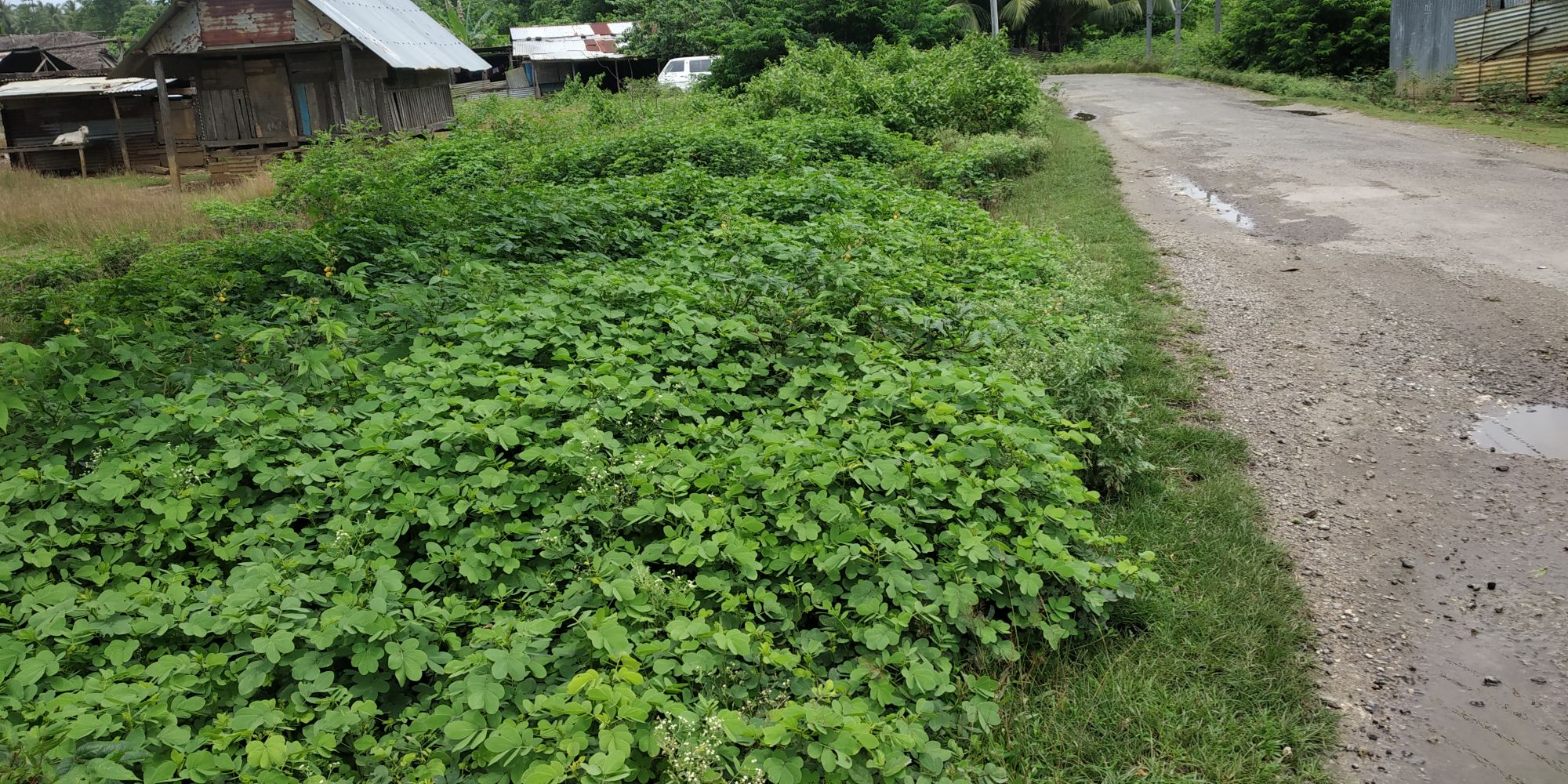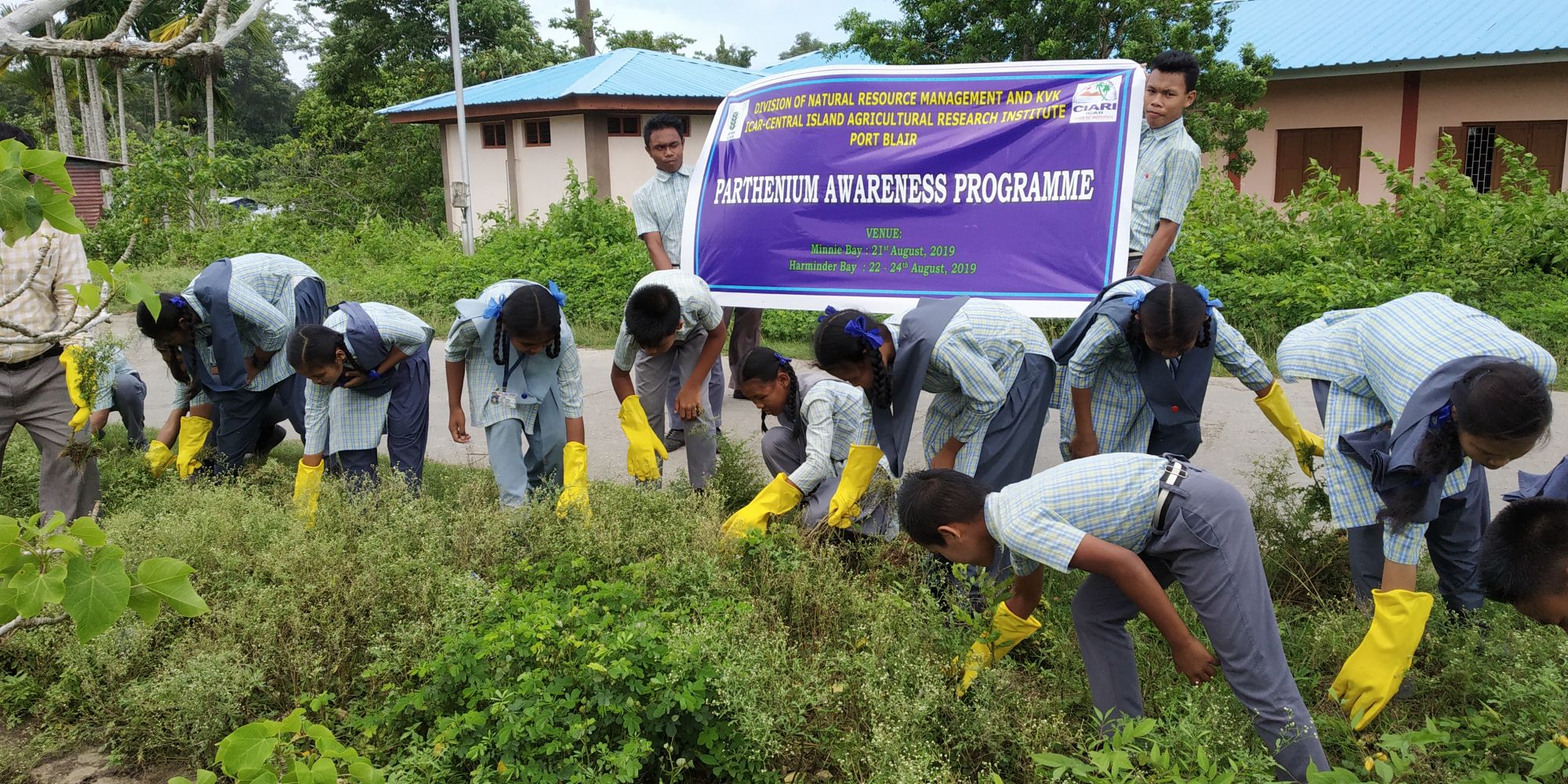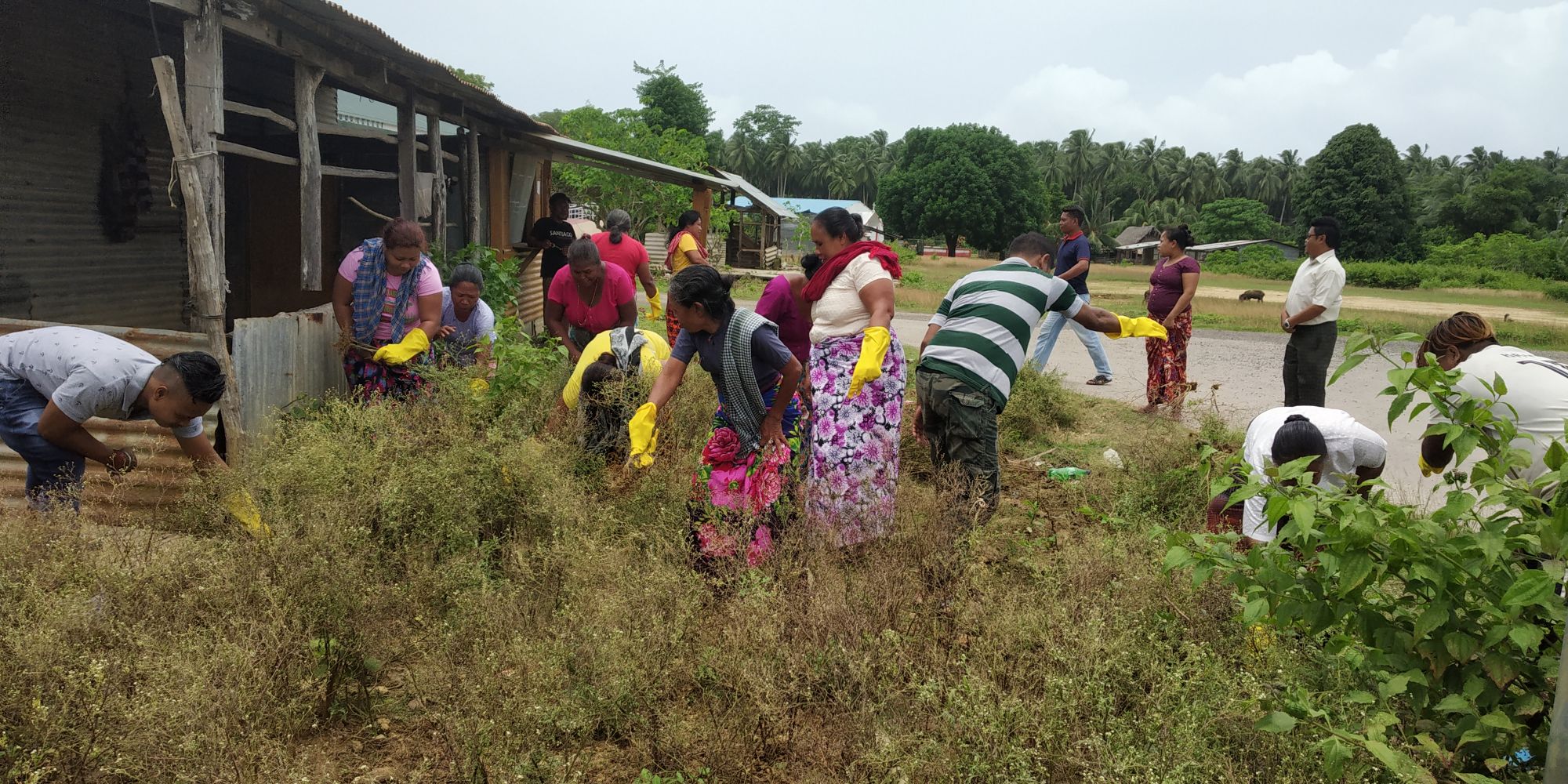SITUATION ANALYSIS
Parthenium popularly known as congress grass is amongst one of the most dreaded weeds of the world. It is a poisonous, problematic, allergic and aggressive weed posing serious threat to crops, pastures, livestock and human beings.Severe infestation of Parthenium was observed in Harminder Bay, Little Andaman widely grown at roadsides, residential areas, kitchen garden and grazing lands. This reduced the land available for grazing of animals and growing vegetables. Movement of organic manures, sand and other food grains was suspected to be the causes of its appearance in tribal areas. Farmers and general public of this village were unaware of its ill effects viz., skin allergy, eye irritation, asthma etc.
TECHNOLOGY INTERVENTIONS
In order to create awareness among the villagers and to reduce the menace, Natural Resource Management Division of ICAR-CIARI, Port Blair has started conducting awareness programme since 2014 at Harminder Bay, Little Andaman during “Parthenium Awareness Week” (3rd week of August). Under this, farmers, students and general public were made aware of the ill effects of parthenium and were given training and demonstration on parthenium management. As parthenium is rich in nutrients, the farmers were trained to make compost out of it. The farmers and students were voluntarily involved in eradication of parthenium through uprooting before flowering stage. The seeds of competitive plants (Cassia cerecia, C. tora, Abutilon indicum) were collected and broadcasted in the infested lands and allowed to grow so as to smother the parthenium weeds.
IMPACT / OUTCOME OF TECHNOLOGY ADOPTION
Before the intervention, farmers and general public of the villages were unaware of the ill effects of Parthenium weeds. Due to this intervention, villagers and students at Harminder Bay have voluntarily involved in eradication of parthenium through uprooting and using it for composting periodically. The competitive plants Cassia sp. have dominated thereby preventing the growth of parthenium.
INCOME GENERATION
After eradication/removal of Parthenium weeds in the kitchen garden, villagers have started cultivation of vegetables for household consumption. The compost made from weeds was used as manure for vegetables. The roadside lands and grounds are used for grazing of animals.
WAY FORWARD
Parthenium awareness programmes can be conducted in all remote islands to monitor/prevent its spread. Prevention of entry from one island to another island may play significant role to contain further spread of Parthenium weed. Provding hand gloves and composting bag for uprooting and composting of Parthenium will help the villagers to protect themselves and livestocks from poisonous parthenium.




